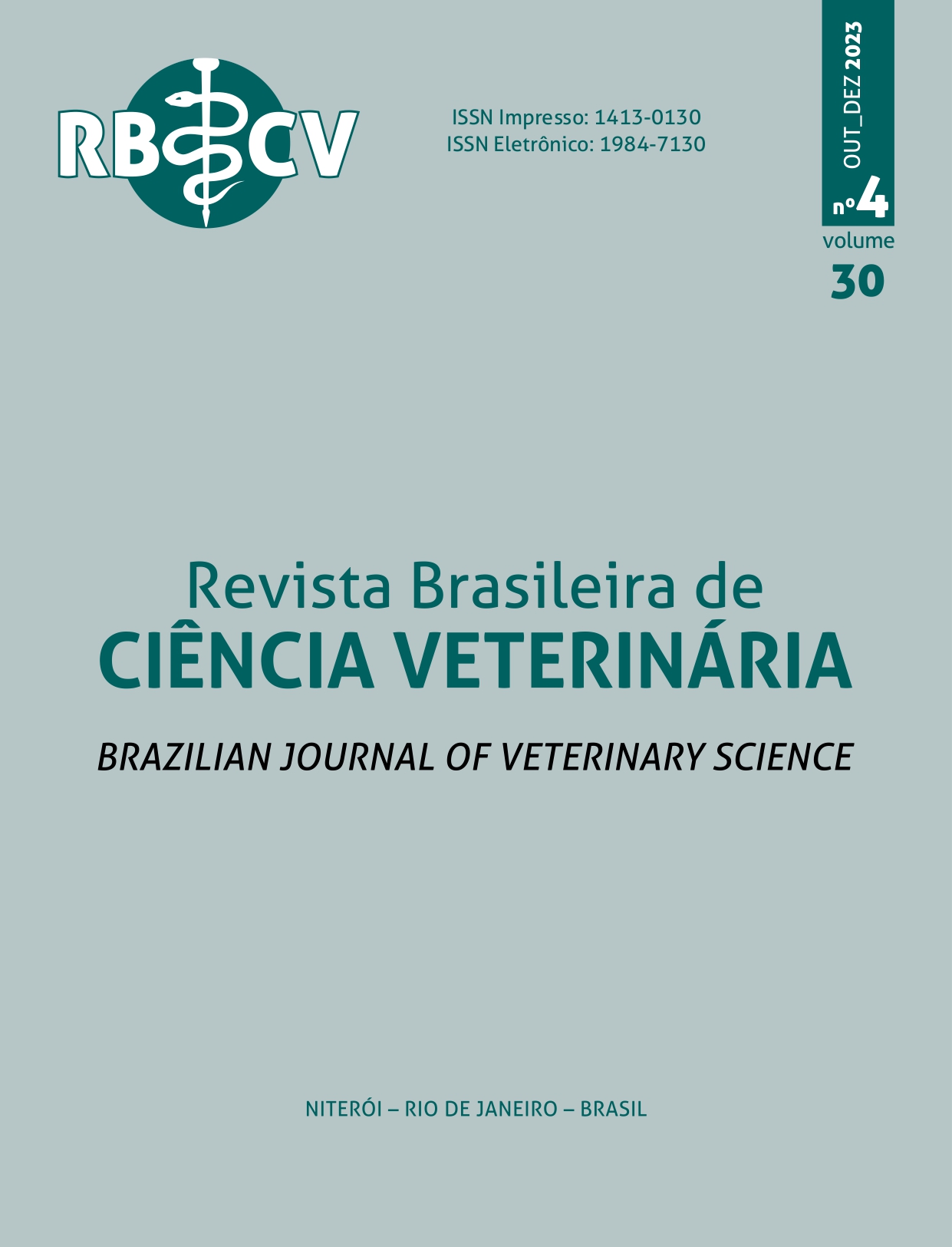Atividade anti-helmíntica da folha de bananeira (Musa sapientum) in natura para equinos naturalmente infectados
Abstract
The equines, being herbivorous animals, are predisposed to gastrointestinal parasitoses because they are in contact with the soil, are the traditional plants are recognized as possessing anthelmintic activity. The present study evaluates an anthelmintic action of Musa sp. in horses, naturally infected by gastrointestinal parasites. Thirty-eight horses between 3 and 10 years, of different sexes and races, and naturally infected by helminths, were used near the municipality of Silva Jardim, RJ. The treatment consisted in the supply of leaf blades of the Musa sapientum species. With the alimentary tract and the results for the EPG count were fulfilled during 5 days of treatment and at 7, 14 and 21 days after the closing of the offer of leaves of M. sapientum. The supplementation of Leaves of Musa sapientum to the diet proved to be useful in the control of large equidae strongylids, revealing us to be a good herbal alternative in a traditional way in the anthelmintic control, however there is a need for phytochemical studies to evaluate the active components that act effectively on nematodes. The applied methodology was innovative for the equine species and proved useful, deserving adjustments in management techniques, as well as the time and volume of administration, as well as in relation to the interval between applications.


